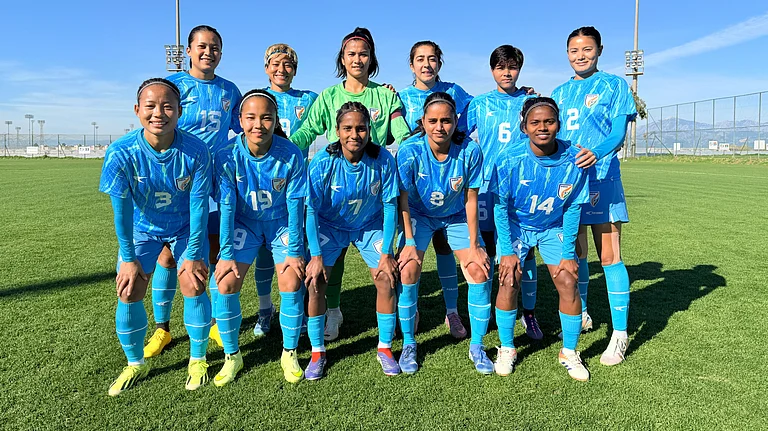Atrocities against Dalits by upper caste communities continue unabated in Bihar. The recent example of a girl being allegedly raped and killed shows how nothing may have changed in the context of caste based crimes in the State. In most cases, promises of justice end up being empty words.
While Bihar has a notorious record for crime against Dalits, the national figures too are grim. Last year the government has reported that around 139,045 incidents of crime against Dalits were filed in various states between 2018 and 2020; 50,291 such crimes were reported in 2021 alone. According to Home Ministry data, Uttar Pradesh recorded the most cases of crime against scheduled castes (SC) in the three years, with 36,467, followed by Bihar (20,973), Rajasthan (18,418), and Madhya Pradesh (16,952).
The latest Bihar incident is a case in point. Three weeks after the dead body of a Dalit girl was found in a trench in Shahpur Chowk in Jandaha block under Tisiauta Police Station of Vaishali district, the family awaits justice. The slain girl's family alleges that the police have been dragging its feet in investigating the case, and they are yet to receive compensation.
The police so far have only arrested two accused in the case while others mentioned in the FIR continue to be on the run.Meanwhile, family members of the girl and Bhim Army, Azad Samaj Party, and CPI(ML) have been demanding a speedy trial, compensation to the deceased parents under Scheduled Castes and Tribes (Prevention of Atrocities) Act.
The FIR filed by Kiran's mother, Akali Devi, mentions that her daughter had gone to relieve herself in a nearby field when she was dragged and forcibly taken away by four upper-caste men. Anurag Kumar, Rakesh Kumar, Manoj Chaudhry, Anshu Kumar and others. Depicting what unfolded on the day of the crime, the FIR states that when the 20-year-old began to weep and shout for help, the family members rushed to help her; however, they were chased away by kidnappers who displayed a firearm and hurled casteist slang and abusive words.
Jaguar Ram, Kiran's father, works as a labourer in Punjab, while her mother, Akali Devi, works as a labourer in Bihar. They live less than half a kilometre away from the place where Kiran's body was recovered.
The FIR registered post-death also states that when Akali Devi and others went to Manoj Chaudhary's house, she was informed that her daughter would return in two days.
The FIR did not mention what happened on those two days after her kidnapping. Instead, it concludes that some women discovered a dead body on December 26.
Leaders and members of Bhim Army, Azad Samaj Party, CPI (ML), and others have been protesting against the incident since the day the girl's body was recovered. They also allege that the delay and police inaction reflect on the insensitivity of the police force in dealing with crimes against the subaltern. Talking to Outlook, the state president of the Bhim Army asserted that the delay only reflects the biases against the Dalit community even among ranks of the government machinery.
"This is not the first time a crime like this has unfolded. It has happened in the past and will continue to occur in the future, despite all the laws meant to protect people from backward communities. However, it will stop when the police, state machinery and media become sensitive to the community's plight and understand their pain as theirs too," he said.
Taking a jibe at the media and larger civil society, Rajesh said, "Imagine if the girl, in this case, had not been a Dalit but an upper caste, the entire media and civil society would have erupted in anger and pressured the police to be proactive. I am not saying that crimes against people who belong to upper castes do not deserve the national limelight, but yes, I reiterate that the media, police and civil society need to treat everyone equally and not consider crimes against Dalits; as lesser."
The protesters also alleged that the girl was raped before being killed. Her body was found in extremely dilapidated condition, with her back and neck broken and a bruised face, indicating rape before being murdered.
Prema Devi, a CPI(ML) worker, said, "The girl was definitely raped before being murdered; however, the case of rape has not been lodged in the FIR. And we also doubt the post mortem report that remained inconclusive on the question of rape. We want this aspect of the crime to be probed again fairly."
"Was the girl the commodity? Her kidnappers reportedly told the family members that the girl would be returned in two days and threatened to not approach the police. It is ironic that Nitish Kumar and Prime Minister Modi keep on talking about girls during elections but states ruled by them present a grim picture on the state of women," she added. Meanwhile, talking to Outlook, Superintendent of Police, Vaishali, Shree Manish, reiterated that police has acted very swiftly in the case and have arrested two culprits so far and will arrest those absconding in coming days.
"The police have acted very swiftly in the case, and two people have been arrested so far; we have been on a look for others very aggressively and will bring them to justice soon," Manish Shree told Outlook.
On being asked about the rape angle," we are not sure of that, and the post mortem report remains inconclusive as of now. However, we have registered cases under IPC 302 and 34 and SC /ST Act.
Bihar has a poor history when it comes to crimes against Dalits. The Ranvir Sena, headed by the Bhumihar caste, carried out the Laxmanpur Bathe massacre. Nearly 56 Dalits, including women and children, were killed in the village of Laxmanpur Bathe. Following the tragedy, a trial exposed the implicit involvement of some of Bihar's major political parties and leaders. The police detachment that was stationed there to safeguard the locals was also accused of assisting the Sena members in their assault on the Dalits.
Charges were filed against 46 Ranvir Sena men in December 2008. Sessions Judge Mishra set a date for announcing the verdict on April 7 2010, after the trial ended on April 1. Following a Patna High Court judgement in October 1999, the case was relocated from Jehanabad to Patna.
The Patna Civil Court's Additional District and Sessions Judge Vijai Prakash Mishra condemned 16 individuals to death and 10 to life imprisonment for the killing on April 7, 2010. Sessions Judge Mishra, who delivered the verdict, termed the massacre as a "shame on civil society and the rarest of rare incidents of cruelty."
Due to "lack of evidence," the Patna High Court discharged all 26 accused defendants on October 9, 2013.
Similarly, since the abolition of Zamindari in 1950, the areas of Parasbigha and Dohia, located a few kilometres south of Patna, have remained in turmoil amid caste wars. Yadavs and Bhumihars were pitted against each other in the battle for more significant territory from the old "Tekari Raj." The Yadavs in this area sided with Dalits in a lengthy and protracted fight that peaked in 1979, when the Bhumihars attacked Parasbigha and killed 11 persons, including one Yadav.
Meanwhile, the Bhim Army Chief, Bihar, Rajesh, told Outlook that a similar case as that of Kiran had taken place in Samastipur too, and media have not reported that.
"We will leave for Samastipur today in the evening to figure out what has happened and update you on that," he said.






















